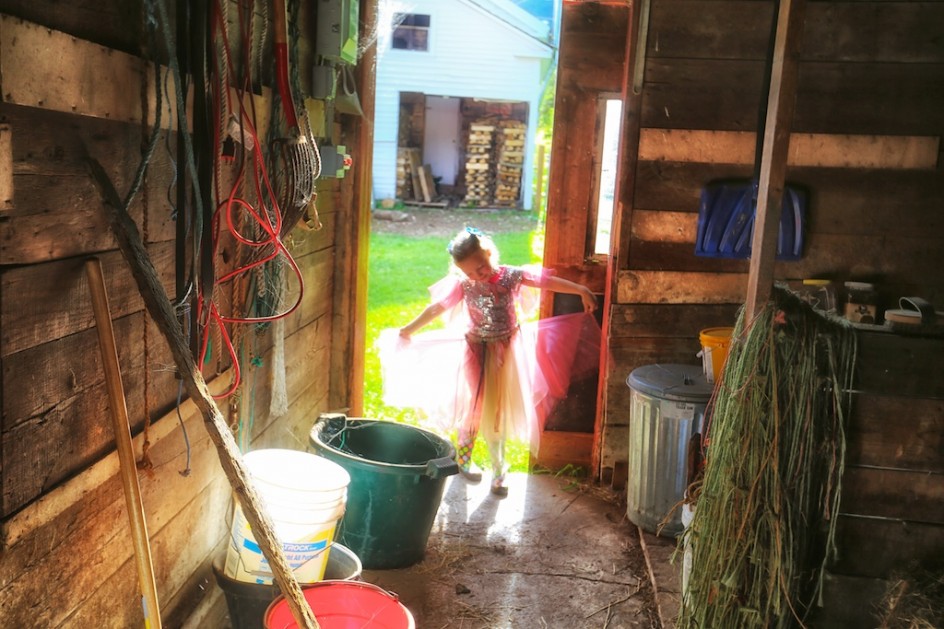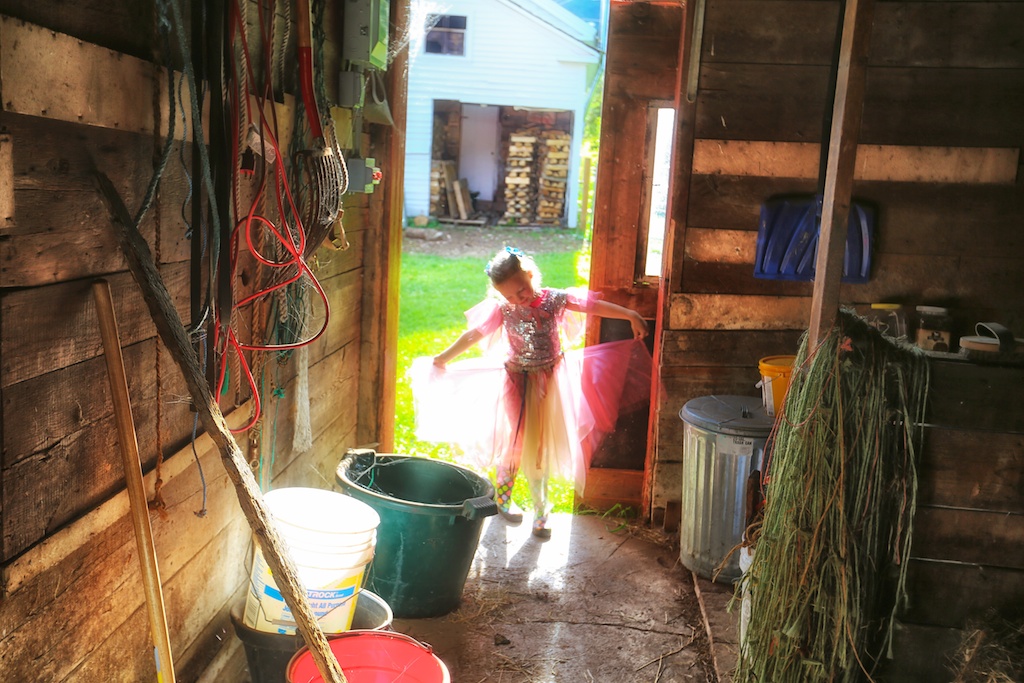
Nikolene Norman has been in our lives for five or six years, after she first appeared in old Bedlam Farm big barn in her fairy costume, it was just before Halloween. Her father, Ken Norman, is our farrier and friend, he comes to the farm every month or so, often with his wife Eli he is wonderful at his work. Ken helped save Simon’s life when he was found dying, and has helped bring his legs back to strength.
Nikolene appeared out of nowhere that afternoon, like a vision, she was dazzling. Apart from her wondrous costume, she enchanted us with her innate charm, her sense of herself, her confidence and poise. She crawled on hay bales, kissed donkeys on the nose, seemed so completely at ease with herself. She became the Bedlam Farm Barn Fairy, and still is. Maria and I have both watched Nikolene evolve from a small child into a young woman, all of the traits we saw in her are even more pronounced.
She is emblematic for me, because I admire the way she was raised, the person she is becoming, the risks her parents took to help her feel secure, loved and confident in a world filled with fear. In a culture that teaches a phobic fear of strangers, Nikolene has been taught confidence, how to make good decisions, how to be in the world with strength. She welcomes people, smiles on them, she has not learned fear and suspicion of people. In a culture where most people are clustered in cities and suburbs far from animals or the natural world, Nikolene lives among dogs, donkeys and horses. She approaches our donkeys with understanding – she knows to be aware around them – but without fear.
She looks adults in the eye, talks to them about their lives, answers questions about hers. In a culture in which parents prevent their children from having even the smallest problems and make even the smallest decisions about their children’s lives, Nikolene works in the barns, shovels hay and manure, handles horses and donkeys, makes decisions for herself all the time, is allowed to have problems and figure them out. She always wants to help.
When we were done trimming the donkeys’ hooves yesterday, Nikolene asked if she could shovel out the barn for us. We said sure, and she did a great job. That does not happen frequently, if ever. Nikolene is strong willed, but obedient. She does not have to be shouted at. She is listened to, and she listens.
Many children come to the farm to meet the donkeys and it is sometimes sad for me to see how frightened they are, how frightened their parents are around our gentle animals, how tentative they are, how distant, often how repulsed they are by the smells, the flies, the manure. Many city parents even bring antibiotic lotions and make their children clean their hands immediately after touching a donkey. You never know, they say, they’ve heard all kinds of stories. This distance and wariness is picked up by all of the animals, they smell and sense it, they return the favor. You can always tell what a person thinks of a donkey by what the donkey thinks of the person.
Nikolene will hop up on one of the donkeys, ride them for a bit, then hop off and kiss them on the nose. They are at ease with her, safe and trusting. She brushes them, talks to them. They are at ease with her.
I can hear some of the people reading this and thinking, “oh, but there are great dangers, just look at the news, strangers can be evil, animals can spread disease, they can be dangerous.” To some extent, all of these things are true, although I think Nikolene is picking up the strength and confidence and experience to make good judgments about herself and herself. We always have a choice – to buy into the Fear Machine’s legalistic, greedy and phobic notions of the world – trust no one, beware of lawsuits, see the world as dangerous place, buy our ideas of safety and prevention – or to buy some or little of it. There is big money in fear, not much in hope and promise.
I love many things about rural life, and one of them is that there aren’t enough of us to attract the full attention of the fear mongers. They haven’t quite poisoned the well where I live, we can’t really afford to hide behind walls. Rural communities are about community, and that means finding reasons to turn to one another, not away from each other. Nikolene is a strong woman already, sensible, empathetic, at ease with herself.
I look forward to seeing Nikolene enter the world and prosper in it, and I appreciate her parents, who have let her live with some sense of freedom and exploration, have problems and solve them. They wanted this life for her, they made sure she had it, it was not easy, like me they often have to go against the grain. But this is why they are here. In their honor and hers, I’m putting up a Bedlam Farm Barn Fairy album on Facebook.

